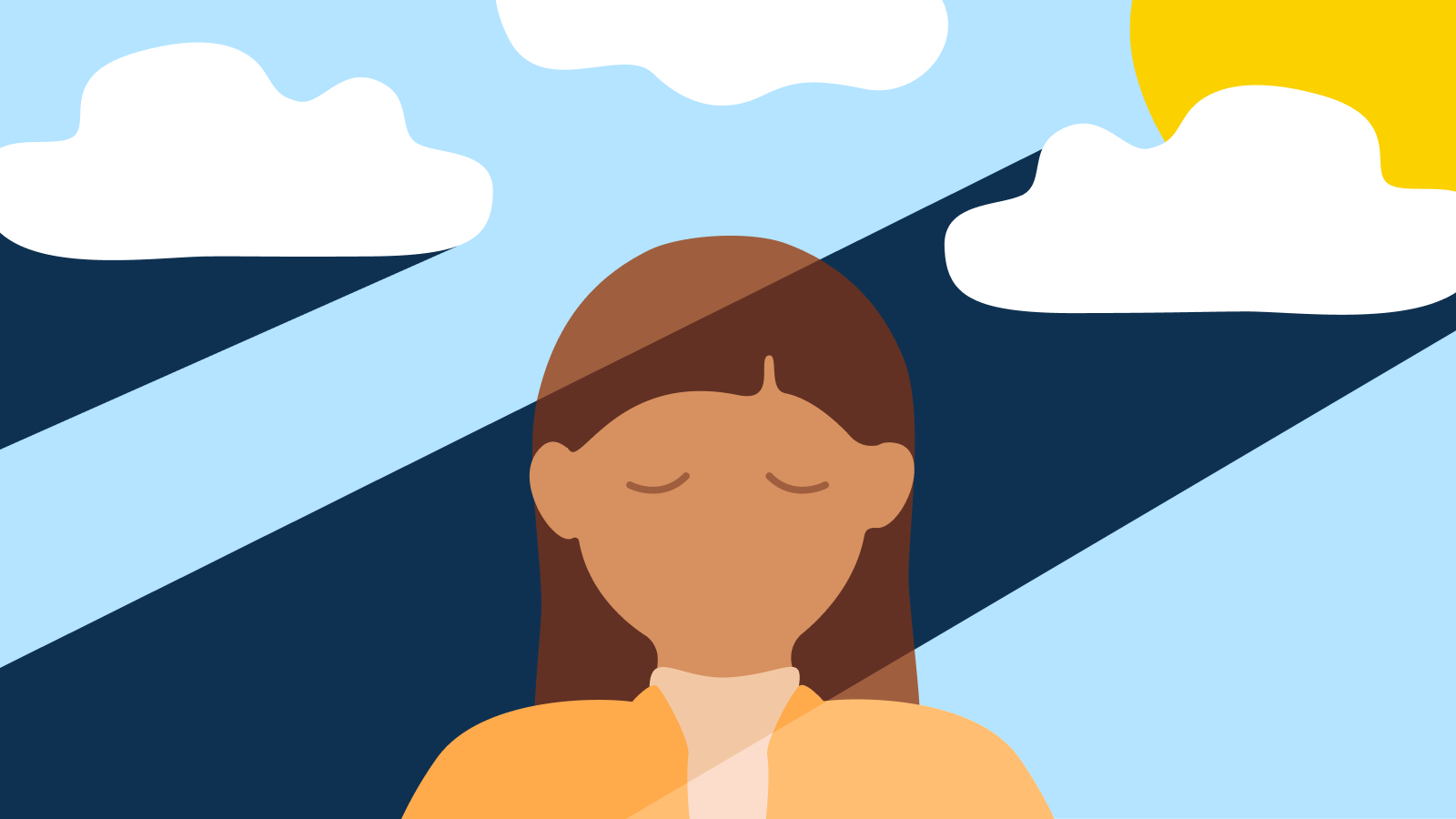What exactly is vitamin D?
Commonly known as the sunshine vitamin, vitamin D is important for regulating the amount of calcium and phosphate we have in our body. These are the nutrients our body uses to keep our bones, teeth and muscles healthy.
‘One of the ways we get vitamin D is through exposure to sunlight,’ says Dr McClymont. ‘As many people have switched to working from home, we may be spending less time outdoors than we’d like, and especially during the winter months it’s important to think about the other ways we can get essential vitamin D.’
What does it mean to have a vitamin D deficiency?
A vitamin D deficiency is simply when you don’t have enough vitamin D in your body. In winter and when we're spending more time indoors, we're not able to get all the vitamin D we need from sunlight which can lead to vitamin D deficiency.
Some people will never get high enough vitamin D levels as they don’t get enough exposure to the sun, or they may be at a higher risk. In these cases, it's recommended to take a daily vitamin D supplement all year round.
What does it mean to have a vitamin D deficiency?
Usually, there are no symptoms of a vitamin D deficiency. If they’re present the signs are often subtle, but some people may notice:
- Getting illnesses or infections more often
- Feeling tired or fatigued
- Hair loss
- Muscle pain
- Lower back pain
- Feelings of depression or low mood
- Wounds that heal slowly following surgery, infection or injury
Vitamin D deficiency can also lead to bone density loss, which makes bones more fragile and increases the risk of fractures after a fall.
'Vitamin D plays a vital role in keeping our immune system working as it should, so if you frequently find yourself feeling under the weather or battling a cold, it might be down to a deficiency,' says Dr McClymont.
Who’s at risk of low vitamin D?
- People who are not often outdoors, for example, those who live in a care home
- People who cover a lot of their skin when outdoors
- People who are black or Asian
- People following a plant-based diet, as a lot of foods that naturally have vitamin D are fish, red meat and eggs
How can I prevent a vitamin D deficiency?
Fortunately, it’s relatively easy to maintain good vitamin D levels. According to NHS guidelines, babies up to 1 year of age need between 8.5 and 10 micrograms of vitamin D a day, while children between 1 and 4 should aim for 10 micrograms a day. This is recommended throughout the year.
Adults and children above the age of 4 should supplement with 10 micrograms of vitamin D a day during the winter months. Supplements are available from nearly all pharmacies and are available in a range of doses.
For a mild vitamin D deficiency, it may be enough to just take the recommended 10 micrograms a day. More severe deficiencies may require higher doses of vitamin D – but always talk to a pharmacist or GP if you’re unsure.
‘Although getting enough vitamin D is important, it’s also vital to remember plenty of sunscreen to protect yourself against the damaging effects of UV radiation,’ says Dr McClymont. ‘People who wear sunscreen can still manufacture enough vitamin D in their skin, with studies finding no association between sunscreen use and vitamin D deficiency. So there’s no reason to avoid it to increase your vitamin D levels.’
What good sources of vitamin D are there?
- Oily fish like salmon, mackerel and sardines
- Red meat
- Liver
- Egg yolks
- Fortified foods like breakfast cereals
- Dietary supplements
How can I treat a vitamin D deficiency?
There are 3 ways to treat a vitamin D deficiency:
- Try to get more sun exposure – around 15 to 20 minutes, 3 times a week is enough
- Eat vitamin D-rich foods (listed above)
- Take a regular vitamin D supplement
- If you’re worried about low vitamin D levels or you’re experiencing symptoms of a vitamin D deficiency, it’s best to get it checked out by a doctor.
This article has been approved by Dr Rhianna McClymont, Lead GP at Livi.



